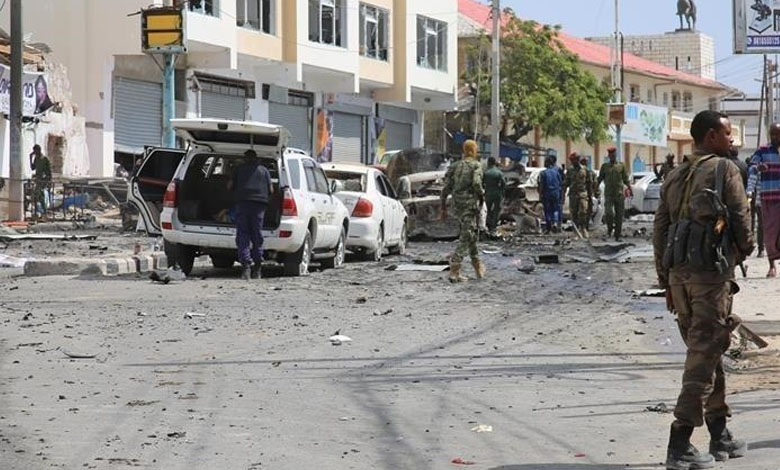Somalia Takes Over Al-Shabaab’s Coffers; Economic War Loses Balance

“Across several tracks, Somalia is continuing its efforts to defeat Al-Shabaab terrorism, besiege it intellectually and economically, and free cities that have fallen into its clutches.”
From intellectual war to economic war to the field, the trajectories on which Somalia’s strategy relied to besiege Al-Shabaab were the first step towards ridding the African country of its terrorism.
Concurrent with the success of the military operations on the ground, the economic war launched by Somalia since last October has been making breakthroughs, described as “significant,” resulting in the closure of more than 250 bank accounts for terrorists and 70 fund-raising telephone slips.
Looming bankruptcy
According to previous statements by Somalia’s Prime Minister Hamza Abdi Barre in January, al-Shabaab is on the verge of bankruptcy because of the government’s policies, including combating money laundering and stopping the financing of terrorism.
These measures were consistent with the liberation of the cities during the first phase of the military operation, which constituted the largest income area for al-Shabaab, and which contributed to the disruption of its economy and paralysis of its activities, among them: Aden Nepal, Aljoud Mosque, Hiiran, Haratiri and other areas.
Somali reports indicate that the Somali government has withheld more than US$30 million of the movement’s funds, which have been in suspicious bank accounts since the beginning of the economic campaign against the group.
The Somali government has succeeded in preventing the money al-Shabaab receives from goods that Somali citizens import through ports and airports, reducing the group’s income by at least half, said Deputy Information Minister Abdirahman Yusuf.
Deputy Minister of Information Abdulrahman Yusuf Al-Adala confirmed that the government seized 15 vehicles used by Al-Shabaab to raise money, killing 20 leaders responsible for managing the organization’s financial apparatus. He said that the government also destroyed Al-Shabaab bases, which used to collect “royalties” from citizens, businessmen, and other individuals in points on the outskirts of Mogadishu.
Extortion of Citizens
“The blackmail used by al-Shabaab to obtain funds from Somali citizens’ goods at ports and airports, as well as the extortion the group used to seize property for circulation, have been stopped,” al-Adala said, noting that the government has succeeded in crippling the group’s financial system since the beginning of the economic war against the group.
The Somali government has closed the financial accounts of al-Shabab through money transfer companies and local banks, the deputy information minister said.
Although the keys to al-Shabaab’s coffers struck in Somalia, the terrorist group was able to move the money through local banks, according to a report issued last November by UN experts.
The group is seeking more money to pay its fighters, which currently costs the rebel group about $1 million per month, the report said.
According to the UN experts’ report, al-Shabaab notified families last May of annual fees ranging from $100 to $300 for iron tablets, stone blocks and multi-story houses.
The group also blackmails owners of buildings and homes being built around Mogadishu for 25% of the project’s value, as the Somali government seeks to undermine the group’s influence and economy.












